Request an Appointment
English: 650.688.3625
Medi-Cal: 650.688.3650
Resource Library » Anxiety & Depression
Anxiety and depression are both common mental health conditions that can significantly impact a person’s thoughts, emotions, and behavior. Learn the signs and symptoms of stress, anxiety, and depression and gain practical advice on how to provide support, including information on therapeutic approaches.
A View of Anxiety & Depression Across the Lifespan
Click to interact with each stage of the lifespan and learn more.
Most young children have fears or concerns that can be part of growing up—things like fear of the dark or loud noises. Most children outgrow these fears, and with others, these fears and worries persist.
As children start school, anxiety and depression may increase. For school-age children, anxiety can show itself in a broad range of symptoms and behaviors that can sometimes affect their school experience—socially, emotionally and academically.
Teens are faced with many social and academic pressures along with the fact that they are developing physically and emotionally and experiencing continuing maturation of their brain. Their anxiety can be more complex and include depression.
Anxiety and depression can increase in young adults as they are faced with mounting academic expectations, a perception of the need to be effortlessly perfect, relationship challenges and worries about the state of the world.
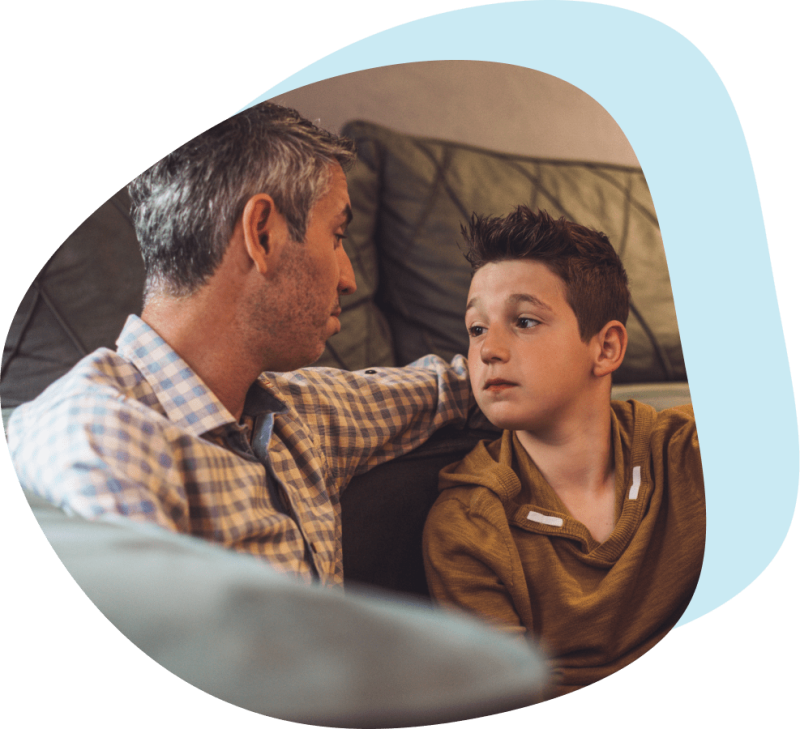
7 Caring Conversation Starters to Reach Your Child or Teen with Anxiety
As a concerned friend or parent, you may want to reach out, but you may not be sure how to begin.
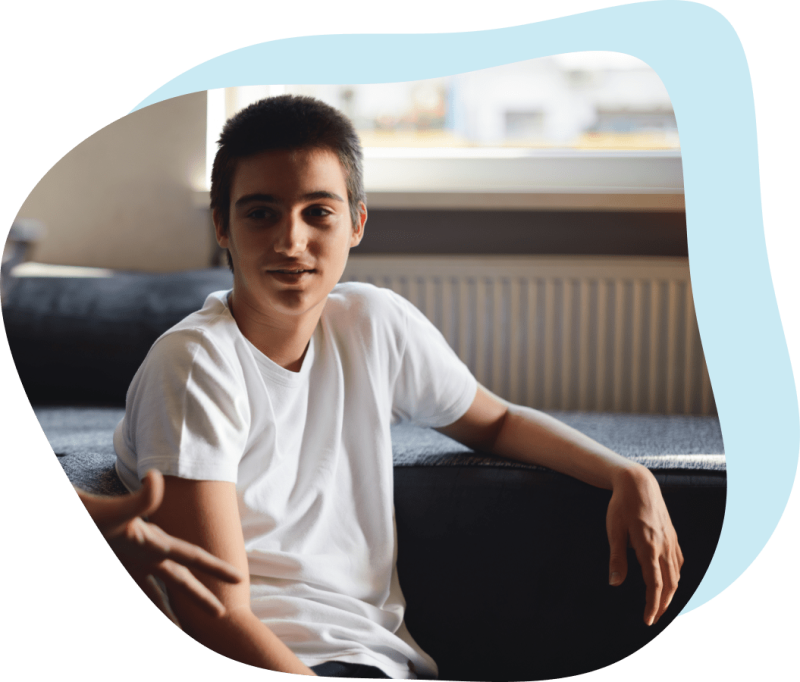
Should My Child See a Psychiatrist?
An initial consultation, while a significant investment of time and resources, can help right the developmental course and prevent a lot of twists and turns in your child’s mental health journey.

How Does Dialectical Behavior Therapy Work?
Dialectical Behavior Therapy (DBT) combines behavioral science with mindfulness concepts to help people who have difficulty regulating emotions.
Go Deeper with Anxiety & Depression
Go Deeper with Anxiety & Depression
Popular searches: anxietyADHDcoping strategies
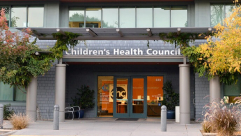
No matter where you are on your journey with learning differences and mental health, we have resources to help. CHC is committed to our community. No one understands the intersection of learning differences and mental health like we do.
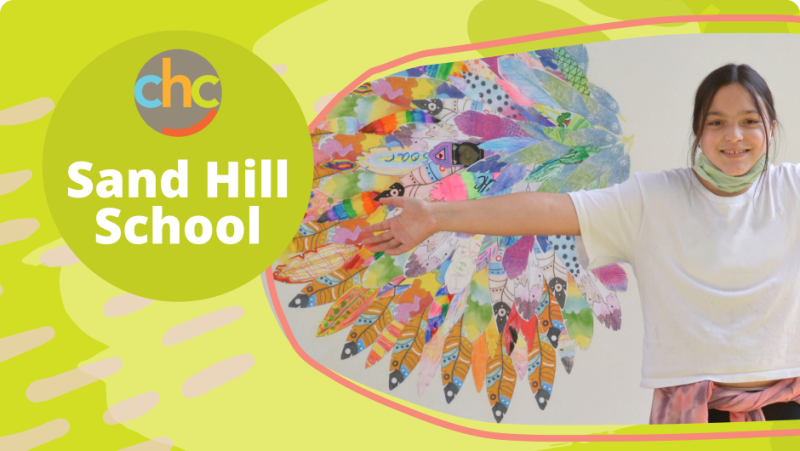
The Silicon Valley school where learning differences are considered superpowers.
Because Sand Hill School students learn differently, we teach differently. We’re dedicated to helping 2nd – 8th grade students with language-based learning differences, ADHD and school-based anxiety learn to love school again.
Our students feel a sense of belonging at Sand Hill for so many reasons. Come see why! Visit our campus, or sign up for an informational tour.
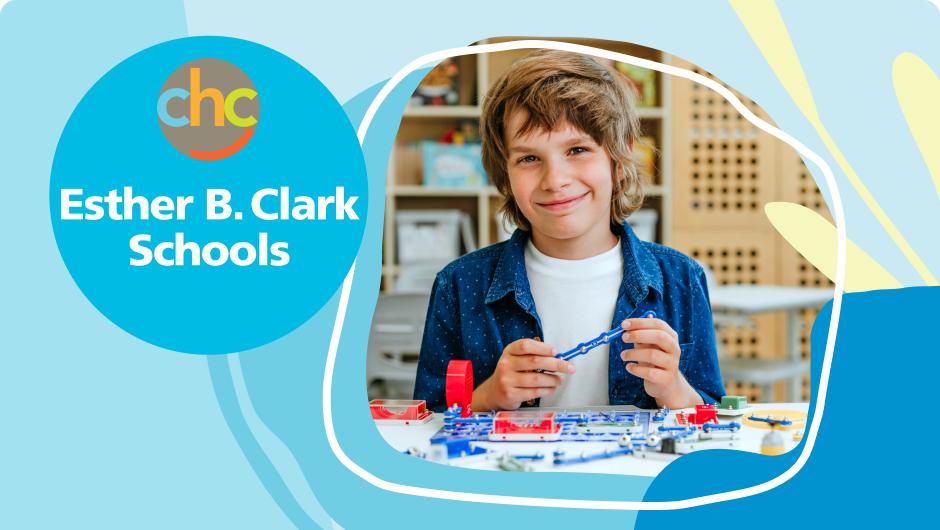
Esther B. Clark Schools (EBC) provides transformative education to Bay Area students in grades K-10 in a caring, therapeutic day school setting.
At EBC Schools, we understand that behavioral challenges are a manifestation of emotional dysregulation, and do not define our students. With the expertise of EBC’s program and staff, children with social-emotional challenges re-engage in learning and develop positive skills to transition back to a more traditional school setting.
We have campuses in Palo Alto and San Jose — visit us to learn more!

Safe, effective and developmentally appropriate strategies to diagnose and treat mental health and behavioral concerns.
CHC’s Catherine T. Harvey Center for Clinical Services offers a client-centered, comprehensive approach in collaboration with parents and allied providers. Our expert psychiatry team recommends and monitors any use of medications in tandem with a strong emphasis on therapeutic interventions. Contact our Care Team to learn more careteam@dev.chconline.org.

Individually designed therapy for you to take charge of your own mental health and wellbeing.
The Catherine T. Harvey Center for Clinical Services at CHC provides specialized, age-appropriate mental health services to address a variety of concerns for young adults. Learn more about our Young Adult Therapy services.
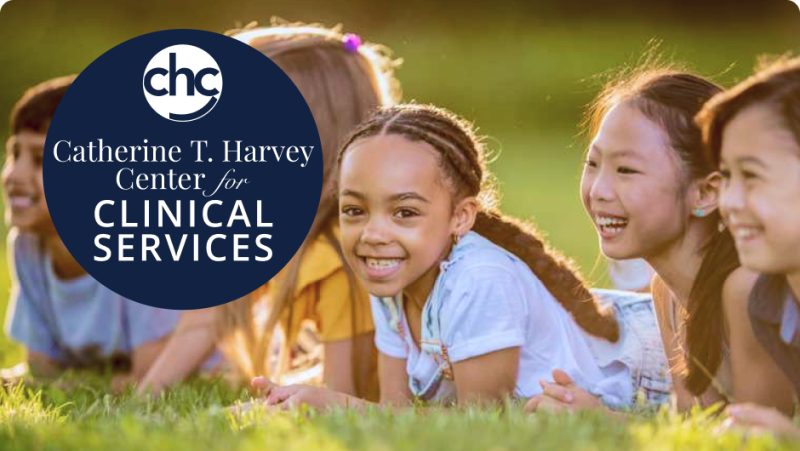
Speech therapy services encourage students to improve their communication skills.
Do you have concerns about your child’s speech or language development? CHC’s Speech-Language experts can help children overcome challenges in language and overall communication including receptive and/or expressive language, articulation, social/pragmatic language and social skills. Contact a CHC Care Coordinator to learn more or make an appointment.
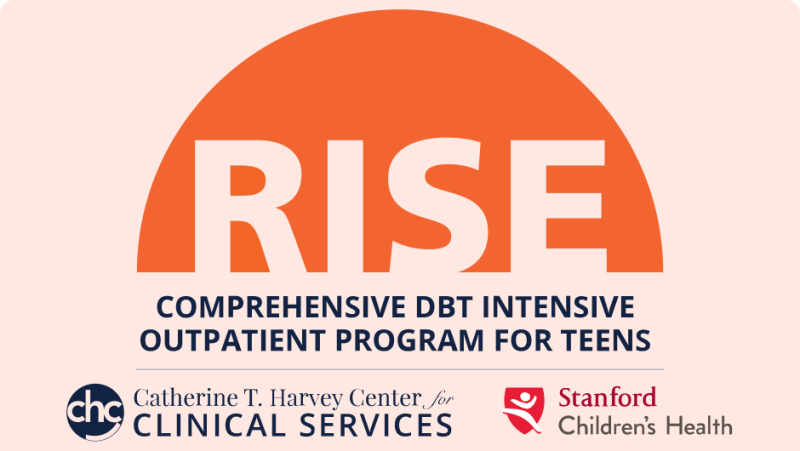
RISE: A Comprehensive DBT Intensive Outpatient Program for Teens
RISE is designed for teens ages 13-18 (grades 8-12) who have suicidal thoughts/ behaviors, recently attempted suicide, and/or repetitively engage in self-harm behaviors. A joint program between CHC’s Catherine T. Harvey Center for Clinical Services and Stanford Children’s Health, RISE offers a comprehensive Dialectical Behavior Therapy (DBT) program, including individual and group therapy, family skills groups and 24/7 phone coaching for teens. You are not alone. Learn more and reach out today.
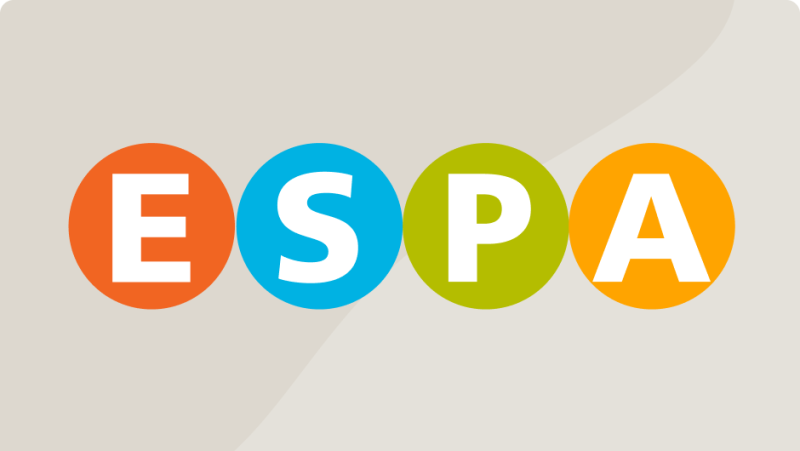
A joint program between CHC and Stanford Children’s Health
ESPA (Early Support Program for Autism) is a lifeline for autism support. A joint program between CHC’s Catherine T. Harvey Center for Clinical Services and Stanford Children’s Health, ESPA is designed to support and assist families who have just received a diagnosis of autism with parent education and with clinical care coordination for their child. Services include sharing resources, parent education, helping families connect with providers and guidance in navigating the education and health care systems, and are offered at no cost to families in English or Spanish.
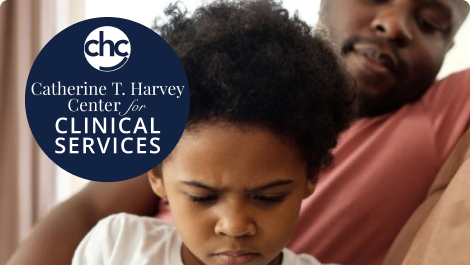
For Children, Teens & Young Adults Ages 0-25 with Mental Health Challenges & Learning Differences
CHC provides single and multi-disciplinary psychoeducational and neuropsychological (learning and mental health) evaluations, with options to include an Occupational Therapist, Speech-Language Pathologist and/or Educational Specialist. During a CHC evaluation, we really get to know your child to learn what issues are interfering with their wellbeing. Then the team collaborates and recommends a plan of action that works best for your family. Whether your child receives a clinical diagnosis or not, our specialists offer coaching and strategies to manage behavioral or educational concerns.
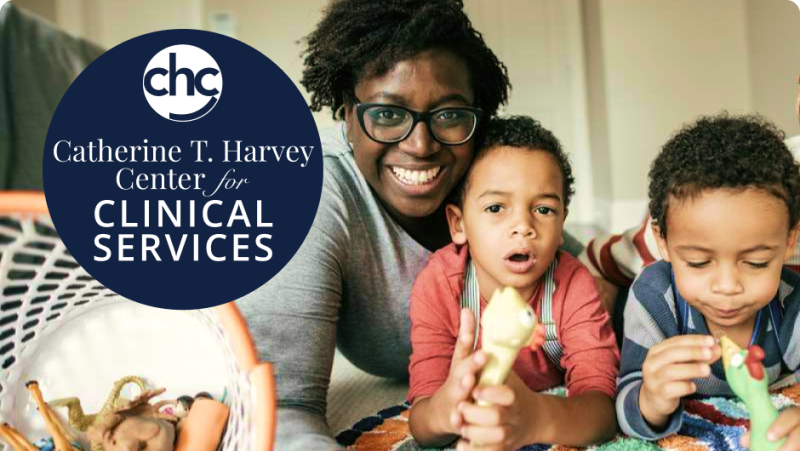
Occupational therapy for children can lead to big benefits, especially for kids with learning and attention issues.
Not only can Occupational Therapy (OT) address delays in fine and gross motor skills, handwriting, emotional regulation and sensory processing, it also enhances overall functioning and participation in daily life activities. Learn more about OT services and evaluations at CHC.
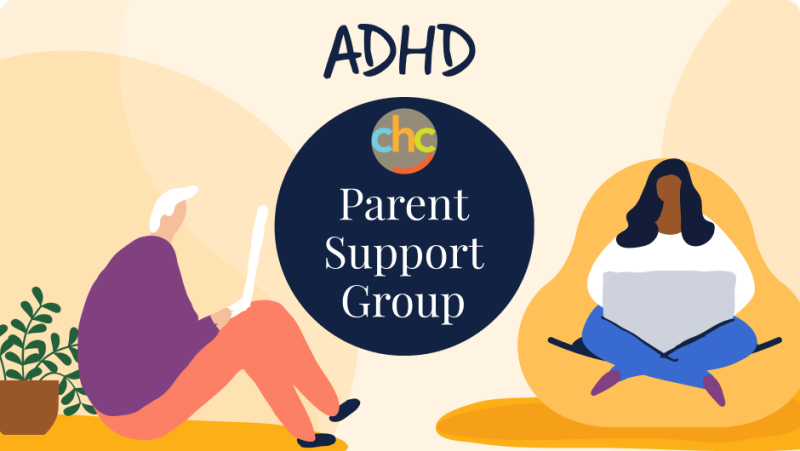
You are not alone. Connect with other parents at a monthly parent support group for parents of children and teens with ADHD.
Do you feel like you are all alone as a parent of a child with ADHD? Come and join other parents of kids with ADHD at CHC’s parent support group. Parents and caregivers are invited to attend this free, virtual monthly support group facilitated by CHC experts with extensive experience serving children, adolescents and families. Sign Up Now!
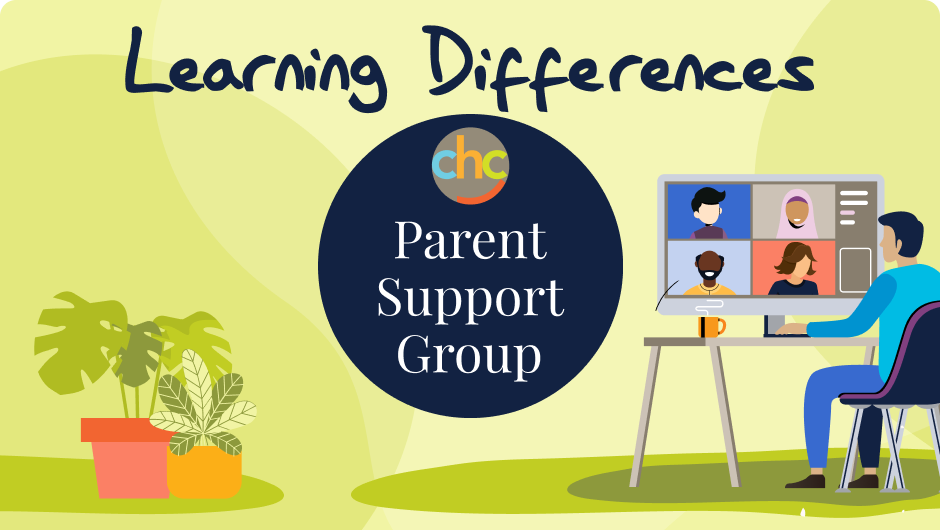
You are not alone. Connect with other parents at a monthly parent support group.
Come and join other parents of kids with Learning Differences at CHC’s parent support group. Parents and caregivers are invited to attend this free, virtual monthly support group facilitated by CHC experts with extensive experience serving children, adolescents and families. Sign Up Now!
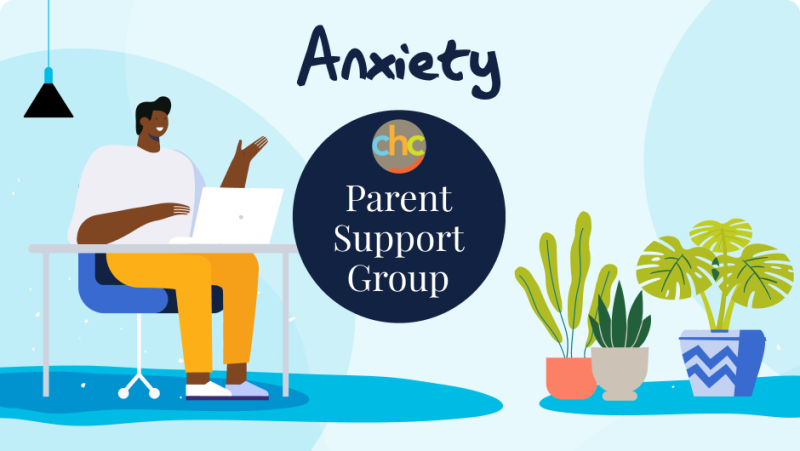
You are not alone. Connect with other parents at a monthly parent support group for parents of children and teens with Anxiety.
Does your child or teen struggle to manage their anxiety and depression? As a parent, do you need support with your own mental health while supporting your child? Join other parents and caregivers at our free, virtual monthly support group facilitated by CHC experts with extensive experience serving children, adolescents and families. Sign Up Now!

Unpack your brain.
Concerned you have a learning difference that warrants accommodations in college or in the workplace? The Schwab Learning Center (SLC@CHC) offers educational evaluations to identify or re-evaluate learning disabilities and ADHD. Learn more about SLC Educational Evaluations.

Helping college and high school students with learning differences navigate school, work and life.
The Schwab Learning Center (SLC@CHC) offers Customized 1:1 Learning Strategy sessions for teens and young adults. Work with an SLC Learning Specialist and create a personalized toolkit with solutions designed to maximize your potential.
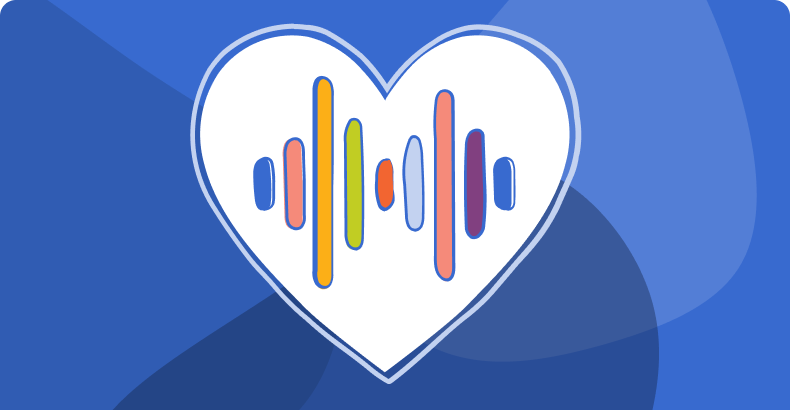
A little courage, connection, and compassion, every time you listen.
Listen for expert advice, insight and inspiration about mental health, education and parenting.
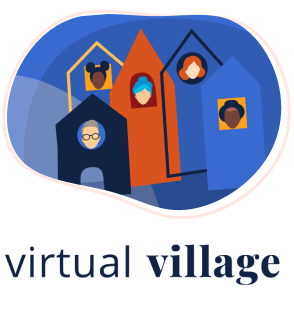
English: 650.326.5530 | Español: 650.688.3650 | Fax: 650.688.3669
English: 650.326.5530
Español: 650.688.3650
Fax: 650.688.3669
Get Help: 650.688.3625 | Medi-Cal: 650.688.3650 | careteam@stage.chconline.org
English: 650.668.3625
Español: 650.688.3650
careteam@stage.chconline.org
© 2024 Children’s Health Council. All rights reserved.
CHC Palo Alto: 650 Clark Way, Palo Alto, CA 94304 | 650.326.5530
CHC South Bay: 2280 Kenwood Avenue, San Jose, CA 95128 | 408.831.7512
CHC Ravenswood: 1765 E Bayshore Rd, East Palo Alto, CA 94303 | 650.702.2487
CHC Palo Alto:
650 Clark Way, Palo Alto, CA 94304
650.326.5530
CHC South Bay:
2280 Kenwood Avenue, San Jose, CA 95128
408.831.7512
CHC Ravenswood:
1765 E Bayshore Rd, East Palo Alto, CA 94303
650.702.2487